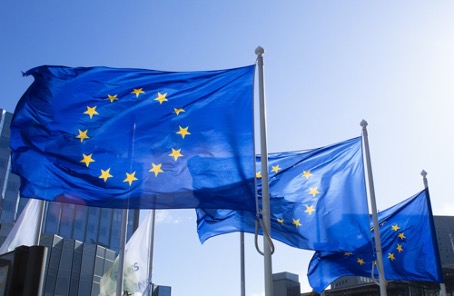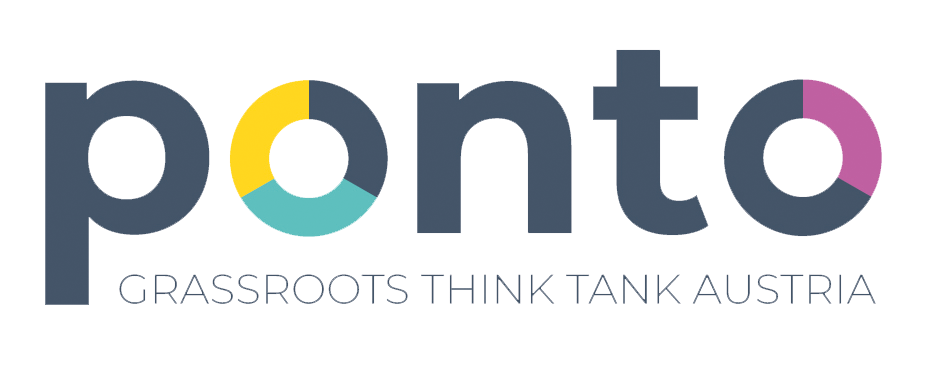
Text by Lara Steiner
Currently, the European Union faces a time of fundamental change and unprecedented challenges. The Russian invasion of Ukraine has altered the geopolitical presence and consequently initiated reassessments of the EU’s future. To ensure transnational security and the viability of democracy on the continent, it is indispensable for the EU to amend its accession policy.
Since the joining of Croatia in 2013, accessions to the European Union have been put on hold, with the current member state number amounting to 27. However, this contemporary stillstand does not entail that other states have not attempted to engage in negotiations with the EU in the past and present. While Croatia was the first and only Western Balkan1 country to enter EU spheres, particularly other states from Europe’s so-called inner courtyard, encompassing Bosnia and Herzegovina, Albania, Serbia, North Macedonia, Montenegro, and Kosovo(*), have undertaken the endeavour of becoming members. Although the EU stated that Western Balkan states are next in line, the moment one of these countries would finally become a full-fledged member seemed far away. The keyword here is seemed.
The recent actions of Russia as an aggressor towards the sovereignty of Ukraine, and therefore acting as a potential aggressor towards the entire continent, have initiated a wake-up call in the EU. Whereas deliberations for granting candidate status to Western Balkan countries took years until progress was made, those providing candidate status to Ukraine and Moldova only lasted a few weeks. The EU has also stated its willingness to grant candidate status to Georgia2 once the country successfully addressed all demands put forward by the European Commission. This indicates that the EU has started to rethink its accession scheme. However, if the objectives of addressing security concerns appropriately and preserving democracy on the continent truly lie on the EU agenda, rethinking is not enough.
Why is an EU enlargement necessary?
Russian attacks on the pillars of sovereignty and peaceful coexistence have inevitably altered the European geopolitical presence and shifted the priorities of the EU. Whereas previously applicant states were on the short end of negotiations, the EU now, after having to acknowledge the fragility of European peace, recognises its own interest in securing borders eastwards. However, Russia’s actions have not only shattered the illusion of security on European soil but also actively threaten the very core of the prevalent political system on large parts of the continent: democratic rule.
Through the invasion, Russia ultimately attempts to put a halt on the political development of Ukraine towards a stable democracy, to avoid the consolidation of ties with the political West, and to remove a close-border threat to its authoritarianism. How can this anti-democratic infiltration be stopped, or its effect mitigated? One answer lies in the widening of the EU’s sphere of influence.
By extending membership, the EU provides fixed guidelines for states to develop, integrate, and coexist. This stability is necessary to ensure that the political progress made in particularly Western Balkan countries is not lost and democratic backsliding cannot gain traction. Russia wants to set an example in Ukraine, and the EU has to make sure that other European countries will not have to face a similar fate. The momentum to open the doors of the Union has now come, and this window of opportunity should be used by any means. European Council President Charles Michel most clearly expressed his desired trajectory for the future by stating:
“Enlargement is no longer a dream. It is time to move forward.”3
The need for change in EU accession policy
It is no secret that among the states which have already been provided with candidate status, many do not yet fulfil all demands put forward by the EU. The essential conditions needed to be satisfied are summarised in the Copenhagen criteria4 and, for example, entail the stability of institutions in guaranteeing democracy, a functioning market economy, and administrative capacities.
Within applicant or candidate countries, reasons of corruption, democratic stagnation, bilateral or domestic conflicts, and delays in implementing the reforms demanded by the EU are determinants in prolonging accession negotiations. The invasion of Ukraine has not magically erased these serious arguments against accelerated accessions of new members, also indicated by a further comment made by Michel, stating that “enlargement is and will remain a merit-based process”.5
However, it is clear that the current accession policy will not result in the desired and needed change of the prevailing order. It will become necessary to weigh the consequences of integrating states into the EU which are not ready just yet, against the possibility of Russia widening its territory forcefully. French President Emmanuel Marcon expressed his preference for the first option by commenting:
“[…] we all know only too well the process for accession [concerning Ukraine] would take several years; in truth, it would probably take several decades. And that is the truth unless we decide to lower the standards for accession and rethink the unity of our Europe and also partially the principles that we hold.”6
Dreaming of a truly united European Union
The Western Balkan countries have found themselves stuck in the waiting room to join the European Union for a considerable time now. Achieving compliance with EU accession criteria proves to be a lengthy process, and the pre-war predictions of when a further Western Balkan country would be ready were deflating. While discussions of the negative side-effects that might result if new accessions do happen cannot be left unconsidered, it is more significant to recognise the detrimental consequences if they do not.
Decision-makers from both sides will be confronted with difficult dilemmas, such as the varying levels of Euroscepticism in Western Balkan countries and the monetary demands of new member states on the EU budget. Further, it should not be dismissed that the initial reason for the invasion was the growing proximity between the West and Ukraine, and an eastward EU enlargement will not happen without triggering a Russian reaction. Still, the pleading of Ukraine cannot be left unheard, and it has to be ensured that a nation and its people are not left alone in times of terror. Working towards a truly united European Union is a necessary step to avoid deadlock and living a life in fear. This is not a sign of counteroffensive but a sign of commitment to the European continent and its persistence as we know it.
An EU enlargement will not be the answer to every single obstacle the Union and the continent face at the moment. Amending the accession criteria will become a tough negotiation process, and new accessions will bring along new challenges for the EU to tackle. Further, there will never be a guarantee for security or the survival of democracy in Europe, and enlarging the EU does not change this fact. However, in times like these, a higher probability of achieving security and political stability, therefore ensuring peaceful coexistence free from aggression, might be the closest we can get to guarantee. An EU enlargement could achieve just that.
Sources:
1The political term „Western Balkans” is used to describe countries in the southeast European region that are not yet part of the European Union. According to the EU, this term encompasses Bosnia and Herzegovina, Albania, Serbia, the Republic of North Macedonia, Montenegro, and Kosovo (*), with Croatia being the only country to have joined officially until now. De Munter, A. (2023). Fact Sheets on the European Union: Western Balkans. European Parliament. https://www.europarl.europa.eu/factsheets/en/sheet/168/the-western-balkans
2While from a geographical perspective, Georgia is considered transcontinental, located at the intersection of Eastern Europe and Western Asia, the country has clearly expressed its European aspirations over time. This is underlined by the strong public support for EU membership and the introduction of key reforms founded on European values and principles in the country. DG NEAR (2022). Opinion on Georgia’s Application for Membership of the European Union. European Commission. https://neighbourhood-enlargement.ec.europa.eu/opinion-georgias-application-membership-european-union_en
3Bayer, L. (2023). Charles Michel: Get ready by 2030 to enlarge EU. Politico. https://www.politico.eu/article/european-council-president-charles-michel-eu-enlargement-by-2030/
4Any European country may apply for EU membership if it respects the democratic values put forward by the EU and is committed to promoting them. The key conditions for successful accession are summarised in the “Copenhagen criteria”, which were defined by the European Council in 1993. Countries wishing to join the EU need to fulfil the requirements of:
- stable institutions guaranteeing democracy, the rule of law, human rights and respect for and protection of minorities;
- a functioning market economy and the capacity to cope with competition and market forces in the EU;
- the ability to take on and implement effectively the obligations of membership, including adherence to the aims of political, economic and monetary union.
DG NEAR. (n.d.). European Neighbourhood Policy and Enlargement Negotiations: Conditions for Membership. European Commission. https://neighbourhood-enlargement.ec.europa.eu/enlargement-policy/conditions-membership_en
5Bayer, L. (2023). Charles Michel: Get ready by 2030 to enlarge EU. Politico. https://www.politico.eu/article/european-council-president-charles-michel-eu-enlargement-by-2030/
6Rankin, J. (2022). Macron calls for new European body and warns Ukraine of EU wait. The Guardian. https://www.theguardian.com/world/2022/may/09/macron-calls-for-new-european-body-and-warns-ukraine-of-eu-wait
*This designation is in line with UNSCR 1244/1999 and the International Court of Justice opinion on the declaration of independence by Kosovo.
Image by Alexandre Lallemand on Unsplash
About the author

Lara Steiner is enrolled in the interdisciplinary Bachelor’s programme Philosophy, Politics, Economics, and History at Utrecht University. She currently interns at PONTO as part of her studies.
